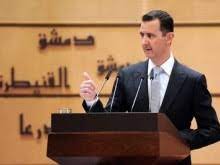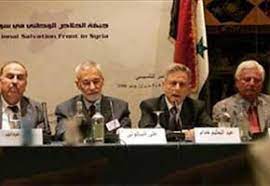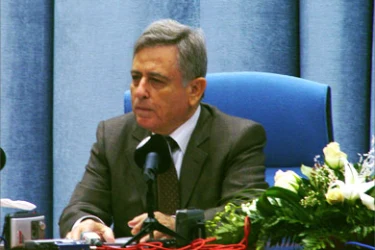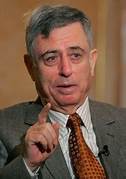On Monday, Syrian President Bashar al-Assad called for a “national dialogue” that could lead to a new constitution and resolve the crisis facing Syria. However, his opponents found the speech “insufficient” and believed it failed to address the severity of the crisis, leading to further demonstrations against his regime.
According to activists cited by AFP, demonstrations took place in Damascus, Latakia, Homs, Aleppo, and several other Syrian cities and towns following Assad’s speech. The protesters rejected the speech’s contents and demanded the continuation of what they referred to as the Syrian uprising.
The Local Coordination Committees in Syria also issued a statement stating that no dialogue would occur until the current regime is overthrown.
The Local Coordination Committees, comprised of prominent activists from the Syrian protest movement, announced the continuation of the “revolution” until the regime is changed.
In their statement, the committees regarded the speech as an affirmation of the regime’s denial and blindness towards the new reality brought about by the ongoing Syrian revolution. They emphasized that their demands must be met before any dialogue can take place.
The committees viewed the call for dialogue mentioned in the speech as a mere attempt to buy time at the expense of the bloodshed and sacrifices of Syrians. They firmly rejected any dialogue that doesn’t aim to peacefully transition away from the current regime towards a new Syria, one that upholds freedom and democracy for all its citizens.
The statement concluded by affirming that the revolution will persist until all of its objectives are achieved.
Khaddam was not surprised by the speech.
Former Syrian Vice President Abdel Halim Khaddam, in the same context, emphasized that he was not surprised by Assad’s speech. During an interview with Radio Sawa, he stated, “I was not surprised by this speech. It accurately reflects Bashar al-Assad’s thinking. This regime has yet to understand the desires of the Syrian people. Assad believes that the entire Syrian population loves him and fails to recognize the widespread dissent and demands for his downfall. He sees himself as the embodiment of the Syrian people’s will, oblivious to the extent of the hatred instilled in Syrians due to the crimes committed by him, his regime, and his security forces.”
Khaddam further commented that Assad addressed issues in his speech that are unrelated to the core crisis, which Khaddam identified as the people’s demand for Assad’s departure.
Khaddam, the regime lacks credibility.
Khaddam stressed, “This regime lacks credibility since a dictatorial regime that concentrates all power in the hands of the head of state, controlling the legislative, judicial, executive, and security authorities, can only exist through repression and corruption. Who would dare to criticize figures such as Rami Makhlouf, Maher al-Assad, or anyone close to the regime?”
When asked about the possibility of the Syrian regime falling, Khaddam responded, “This regime has already fallen. It can do nothing but resort to violence. There is Arab silence, and the international position initially remained silent, then became hesitant, and now it is taking steps. The only option for the international community now is the departure of the regime because its continuation would transform the peaceful aspirations of many in Syria into violence, ultimately turning Syria into a breeding ground for extremism. This is a concern for the West.”




